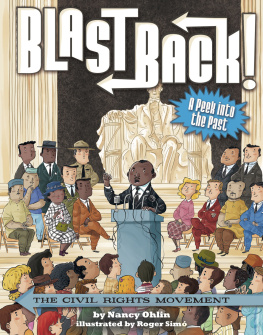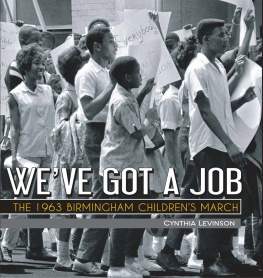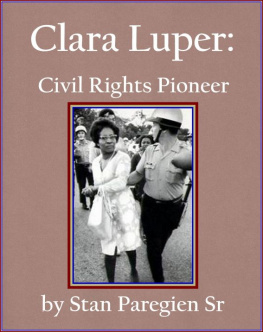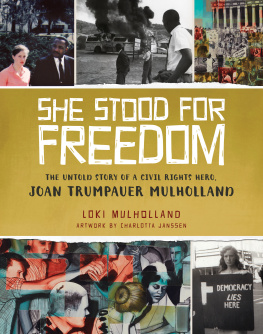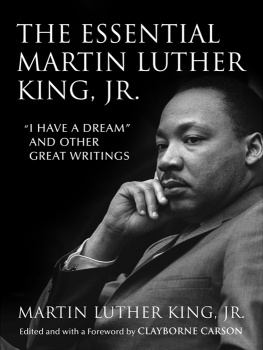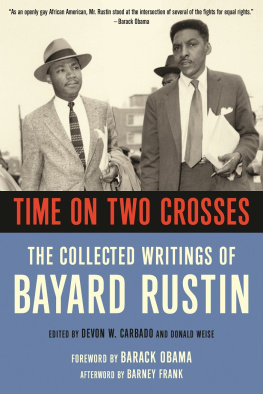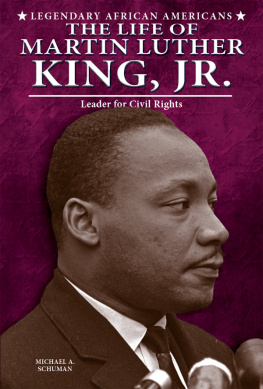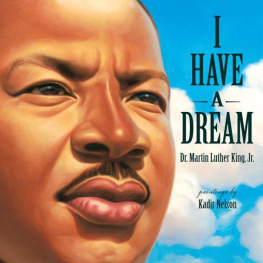Table of Contents
The
March on
Washington
Rachel Tisdale
We
Shall
Overcome
Titles in
This Series
Brown v. Board of Education
The Freedom Riders
The Little Rock Nine
The March on Washington
The Montgomery Bus Boycott
The Woolworths Sit-In
ISBN 978-1-4777-6069-7
RACHEL TISDALETHE MARCH ON WASHINGTON
ROSEN / PowerKids Press
We
Shall
Overcome
The
March on
Washington
New York
Rachel Tisdale
Published in 2014 by The Rosen Publishing Group
29 East 21st Street, New York, NY 10010
Copyright 2014 by The Rosen Publishing Group
All rights reserved. No part of this book may be reproduced in any form
without permission in writing from the publisher, except by a reviewer.
Produced for Rosen by Calcium Creative Ltd
Editor for Calcium Creative Ltd: Sarah Eason
US Editor: Joshua Shadowens
Designer: Paul Myerscough
Photo credits: Cover: Corbis: Flip Schulke (fg), Library of Congress: Warren K. Lefer
(bg). Inside: Corbis: Bettmann 25, 27; Flickr: Stab at sleep 11; Getty Images: Robert
W. Kelley/Time & Life Pictures 24, Michael Ochs Archives 15; Library of Congress: 7,
13, Frederick Dielman 4, Ed Ford 12, Orlando Fernandez 3, 20, Carol M. Highsmith
Archive 28, Warren K. Lefer 1, 8, 10, 18, 22, Stanley Wolfson 16; National Archives:
White House Photograph Collection 19; Shutterstock: L. Kragt Bakke 9, Donald
Bowers Photography 5, Maximus256 14, Spirit of America 29, Jarno Gonzalez
Zarraonandia 21; Wikimedia Commons: Walt Cisco, Dallas Morning News 26, Cecil
Stoughton 17, USIA photo 23, John Vachon, Library of Congress 6.
Library of Congress Cataloging-in-Publication Data
Tisdale, Rachel.
The March on Washington / by Rachel Tisdale.
pages cm. (We shall overcome)
Includes index.
ISBN 978-1-4777-6069-7 (library) ISBN 978-1-4777-6070-3 (pbk.)
ISBN 978-1-4777-6071-0 (6-pack)
1. March on Washington for Jobs and Freedom (1963 : Washington, D.C.)
Juvenile literature. 2. King, Martin Luther, Jr., 19291968. I have a dreamJuvenile
literature. 3. Civil rights demonstrationsWashington (D.C.)History20th
centuryJuvenile literature. 4. African Americans
Civil rightsHistory20th centuryJuvenile literature. I. Title.
F200.T57 2014
323.119607309046dc23
2013026888
Manufactured in the United States of America
CPSIA Compliance Information: Batch #W14PK5: For Further Information contact Rosen Publishing, New York, New York at 1-800-237-9932
Unfair Treatment ......................................... 4
Suffering and Segregation ........................
A True Leader ............................................. 8
The Build Up .............................................. 10
Asa Philip Randolph ................................. 12
Birmingham, Alabama ............................ 14
Great Leaders ..........................................
Kennedy Takes Action ............................. 18
Planning the March ................................. 20
The March Begins ..................................... 22
I Have a Dream .................................... 24
Act of Hope ..............................................
A Lasting Legacy ...................................... 28
Glossary ..................................................... 30
Further Reading and Websites ............... 31
Index .......................................................... 32
Contents
Unfair
Treatment
Today, US citizens have the same legal rights as
other citizens, regardless of race. This was not
always the case. For almost 250 years, white
European settlers brought Africans to America to
work as slaves on huge cotton and sugar plantations
in the southern states. The slaves were cruelly
treated, and had no control over their lives.
The Abolition of Slavery
Although the United States abolished slavery in 1865, equality
did not follow, and African Americans continued to be treated
unjustly. Most of the freed slaves lived in the southern states,
where the plantations were. Many freed slaves were killed,
African Americans all over the
country celebrated when slavery was
abolished in 1865. However, life did
not improve for all former slaves.
tortured, and beaten
for committing crimes,
such as attempting to
vote, talking back to a
white man, or even just
for being unpopular.
No Opportunities
In the northern states, too,
African Americans faced
unfair treatment. Bankers
would not lend them
money to buy houses,
which meant they had to
live in the poorest areas
of cities and towns. White
people were reluctant to
employ African Americans
in good jobs, so most had
to take low-paid work.
The NAACP
In 1909, the National Association for
the Advancement of Colored People
(NAACP) was formed to ght against
the unfair treatment of African
Americans. The organization, based
in New York City, started to pursue
equal rights for African Americans
through the US courts. It went on to
become one of the major civil rights
organizations that helped secure
equal rights for African Americans
during the 1950s and 1960s.
All Americans today are free, but
for African Americans this was
not always the case.
Suffering and
Segregation
Even 100 years after the abolishment of slavery,
life for African Americans in the United States
had improved little. Due to their involvement
in slavery, many white Americans continued to
have racist attitudes toward African Americans
and did not see them as equal human beings.
Jim Crow Laws
African Americans still
faced discrimination
and abuse on a daily
basis. Some white
Americans, especially
in the southern states
of the country, wanted
to keep themselves
separate from African
Americans. They were
afraid of what would
happen if everyone
mixed freely. Southern
states passed laws,
known as Jim Crow
laws, which stated that
African Americans had
to use different facilities
from white Americans.
African Americans had to drink from
separate drinking fountains because of
unfair segregation laws in the South.
The Ku Klux Klan
The Ku Klux Klan (KKK) was an organization founded in
1865 after the American Civil War. It formed to ght against
equality for former slaves and against African Americans
being voted into southern state governments. The KKK
eventually had members and active groups in all of the
southern states. There, they waged a war of terror and
violence against many African American and white American


